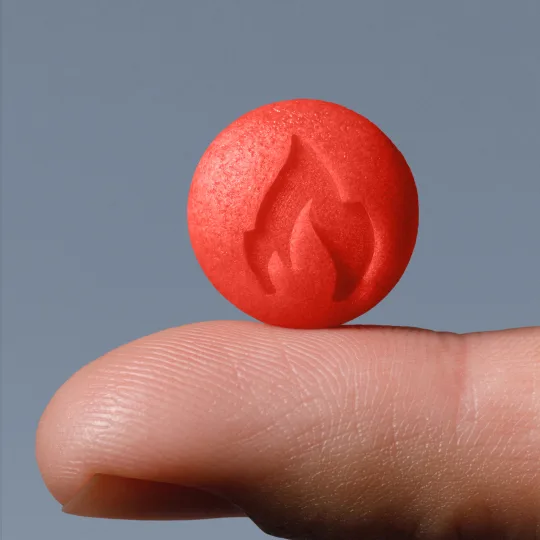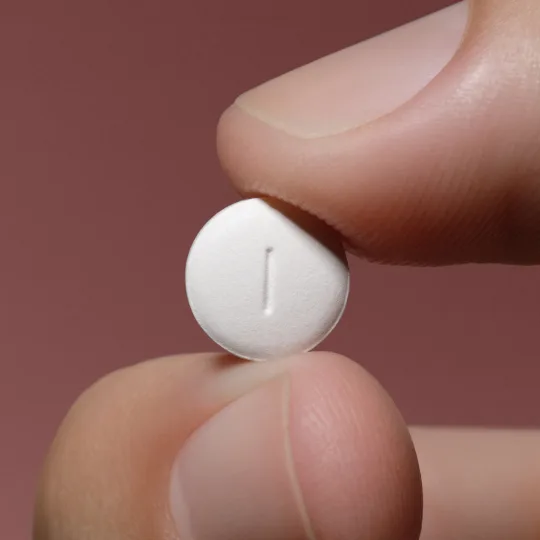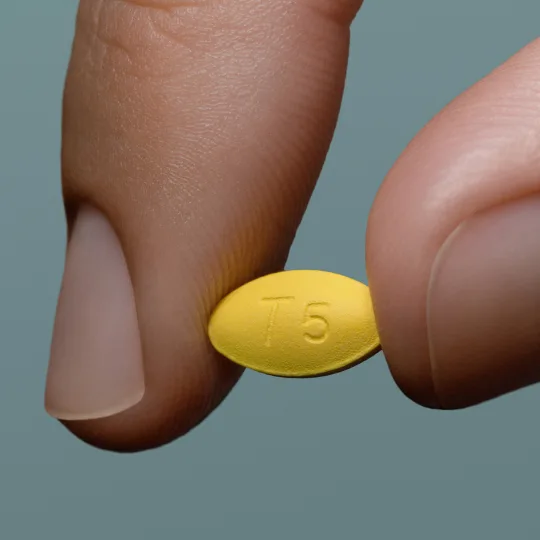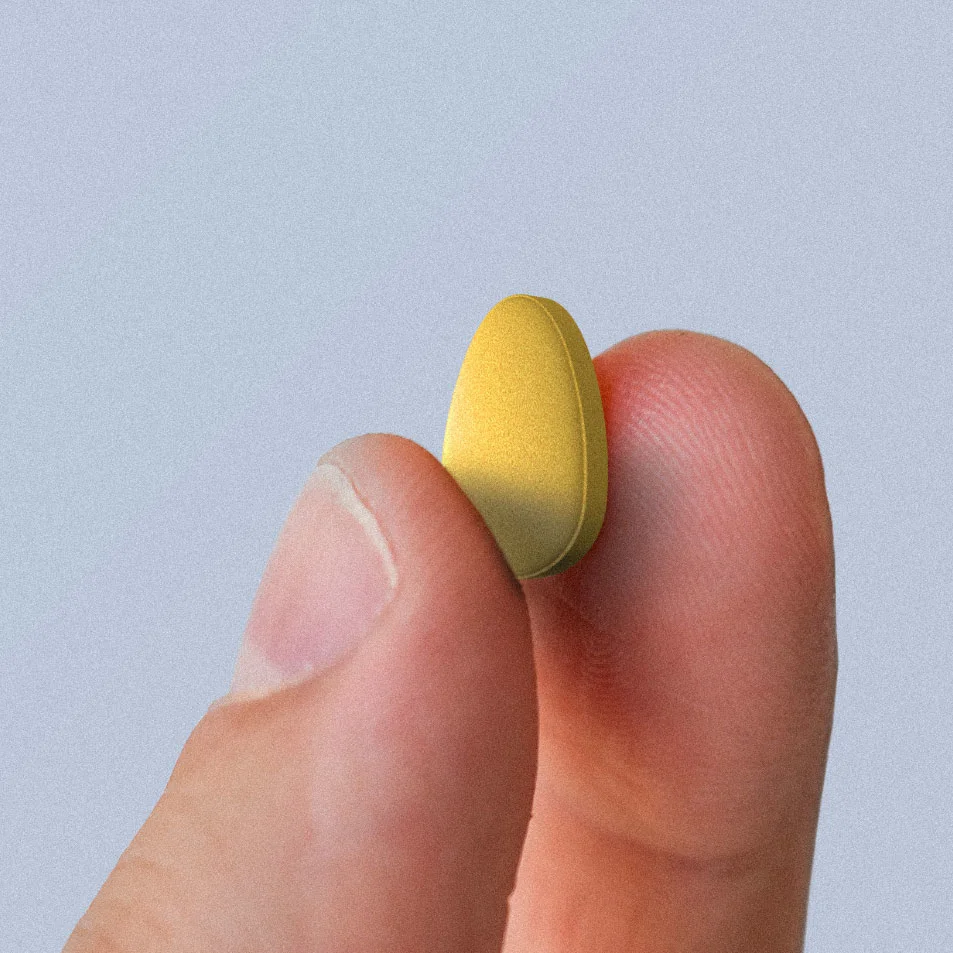Key takeaways
Kombucha may offer some support for sexual health when included as part of a balanced lifestyle and diet, but this hasn’t been explicitly tested.
Kombucha’s probiotics and antioxidants may provide wellness benefits that can impact overall health.
Research suggests possible links between kombucha, fertility, and circulation, although the evidence remains preliminary.
Here's what we'll cover
Here's what we'll cover
Here's what we'll cover
Key takeaways
Kombucha may offer some support for sexual health when included as part of a balanced lifestyle and diet, but this hasn’t been explicitly tested.
Kombucha’s probiotics and antioxidants may provide wellness benefits that can impact overall health.
Research suggests possible links between kombucha, fertility, and circulation, although the evidence remains preliminary.
You probably know kombucha for its fermented taste and gut health benefits, but could it actually support your sexual health, too?
The reality is, kombucha’s sexual benefits are mostly indirect and not well proven. It contains probiotics that support gut health and B vitamins that help with energy production. Kombucha also has antioxidants, which can help lower oxidative stress in the body and support erectile health over time. Together, these factors may support overall wellbeing and thus support overall sexual health — but kombucha definitely can’t replace medical care or treatment for sexual concerns.
In this article, we’ll unpack what’s known about the benefits of kombucha sexually and explore other ways to improve sexual wellbeing.
5 sexual health benefits of kombucha
People often wonder, does kombucha help sexually? While research hasn’t directly tested kombucha for sexual health, its nutrients, antioxidants, and probiotics may support your health in ways that contribute to sexual health. Here are five ways kombucha may play a supportive role.
1. Improves blood flow and circulation
Good circulation is important for sexual performance, and kombucha may offer a subtle boost in this area. It contains trace amounts of L-arginine, an amino acid your body uses to make nitric oxide (NO).
Nitric oxide helps blood vessels relax and widen, which in turn supports smoother circulation to all areas of the body, including those involved in sexual arousal and erections. That said, the amount of L-arginine in kombucha is quite small, likely not enough on its own to noticeably change erections or sexual stamina.
But when enjoyed as part of a diet that includes other circulation-friendly foods (like beetroot and leafy greens), kombucha may play a small supporting role in keeping blood flow healthy.
2. Reduces oxidative stress
Oxidative stress occurs when unstable molecules called free radicals accumulate in the body, causing damage. Over time, this can affect your overall health, including your sexual health and erection quality. Kombucha may help counter this effect because it’s naturally rich in antioxidants, especially when brewed with green tea.
Antioxidants, such as polyphenols and vitamin C, act as protective compounds, helping to neutralize free radicals before they can cause harm. While kombucha isn’t a cure for oxidative stress, including it as part of a diet with other antioxidant-rich foods like berries, leafy greens, and nuts may offer extra support for long-term sexual health.
3. Supports gut health (which affects hormones and libido)
Kombucha contains probiotics, the “good” bacteria that help keep your gut microbiome in balance. A healthy gut supports proper nutrient absorption, which in turn can influence energy levels, hormone balance, and overall sexual health.
There’s also a growing body of research connecting gut health to fertility. For people with penises, maintaining a diverse gut microbiome may help regulate processes like spermatogenesis (the production of sperm) and reduce inflammation, both of which can impact sexual wellbeing.
While there are no human trials directly showing kombucha improves sexual function, adding it to your diet could be one way to give your gut, and by extension, your sexual wellness, a little extra support.
4. May support fertility
Fertility is influenced by a wide range of factors. One area of growing interest is the reproductive microbiome, which is the community of organisms that inhabit the reproductive tract. Because kombucha contains probiotics, it raises the question of whether these beneficial bacteria might also play a role in reproductive health.
Early research suggests probiotics could help by restoring microbial balance and reducing inflammation, both of which are linked to reproductive health and fertility. For example, some studies have found that oral probiotic use could improve sperm motility, but more research is needed to confirm these effects.
When it comes to female fertility, the picture is less clear. Some studies suggest that probiotic strains — particularly Lactobacillus species — may help maintain a healthy vaginal microbiome and support pregnancy outcomes, while other reviews find the evidence inconsistent or inconclusive.
In short, while probiotics in general show promise for reproductive health, there’s not enough evidence to say whether drinking kombucha has a direct effect on fertility. At best, it may contribute to a balanced gut and reproductive microbiome as part of a broader, fertility-supportive lifestyle.
5. Boosts energy levels
Kombucha isn’t meant to be an energy drink, but it naturally contains B vitamins and a little caffeine from the tea it’s brewed with. Both nutrients play a role in energy metabolism, which means they can have a positive influence on sexual energy and endurance.
For people who are more sensitive to caffeine, kombucha may feel like a gentler alternative to coffee or energy drinks. Instead of the jittery rush those can cause, a glass of kombucha can offer a subtle lift that helps you feel more alert and energized, which could even potentially help support better focus and stamina during sexual activity.
Other potential health benefits of kombucha
Beyond its impact on sexual health, many people drink kombucha for its potential other health benefits. It won’t cure health issues on its own, but it may offer supportive effects. Here are some of the most well-known ones.
May support weight management
Kombucha may play a minor role in supporting weight management, particularly when used as a substitute for higher-calorie beverages. Many bottles contain around 60 calories or less, and the natural carbonation can make the drink feel filling, which some people say can help reduce cravings for extra snacks or sugary beverages.
Its potential benefits may also extend beyond calories. Early research suggests kombucha could help by reducing inflammation and easing oxidative stress, both of which are connected to obesity and related health concerns, but further research needs to be done in humans in order to better understand these potential effects.
May help regulate blood sugar
Since kombucha is often brewed with green tea, it may offer some small benefits for blood sugar control. Research on green tea shows it can modestly lower fasting glucose and HbA1c (a measure of long-term blood sugar levels), and in some cases improve how the body uses insulin. Findings aren’t entirely consistent across studies, and these effects haven’t been proven specifically for kombucha, but the overall evidence suggests a potentially supportive role when included as part of a balanced diet.
Supports the immune system
Your immune system is closely tied to your gut; around 70–80% of immune cells are found in gut-associated lymphoid tissue. That means what happens in your digestive tract can influence how your body responds to infections and how resilient you feel overall.
As a fermented drink, kombucha contains live microorganisms and bioactive compounds that may help support a balanced gut microbiome. Research suggests that a healthy gut environment is linked to better immune regulation because it helps maintain the gut lining, regulate immune cell activity, and support the body’s ability to respond to infections.
Some studies also suggest probiotics could play a role in reducing the risk of issues like allergies or certain infections, though most of this research involves specific probiotic strains, not kombucha itself.
While kombucha shouldn’t be viewed as a stand-alone immune booster, including probiotic-rich foods and drinks like kombucha as part of a balanced diet may gently support your immune system over time.
Aids digestion
Fermented foods have been part of the human diet for a long time, and one of their biggest benefits is how they may support digestion.
As a fermented food, kombucha contains beneficial bacteria and bioactive compounds created during the fermentation process. Once consumed, these microbes and nutrients can interact with the gut microbiome, helping maintain a healthier balance of bacteria.
This can contribute to your overall gastrointestinal health. While kombucha isn’t a cure-all for digestive problems, incorporating it into your routine alongside other fiber-rich and probiotic foods may provide your gut with a gentle boost and help keep things running more smoothly.
Kombucha benefits for men vs. women
Kombucha may support sexual health in different ways for any gender, though research is still limited. Most of what we know comes from its nutrients, probiotics, and effects on the gut.
Kombucha benefits for men
Gut health may play a role in sperm quality, so kombucha’s probiotics could offer indirect support male reproductive function.
Better circulation is key to erectile function, and kombucha contains small amounts of compounds that may support blood flow. That said, these effects are subtle, and kombucha on its own isn’t likely to produce a noticeable change.
Trace minerals like zinc, sometimes present in kombucha, are linked to prostate health. However, the amounts found in kombucha are far too small to have a noticeable effect — think of it more as a gentle complement to a balanced, nutrient-rich diet
Benefits of kombucha for females
Probiotics may help support vaginal microbiome balance, which is important for reproductive health.
Some people with a vagina find fermented foods like kombucha may ease minor hormonal shifts, though scientific evidence is limited.
The mild caffeine and B vitamins in kombucha may provide a slight energy boost, which can help improve stamina.
Overall, these potential benefits are still being studied, and kombucha should be enjoyed as part of a balanced diet rather than relied on as a treatment.
How to use kombucha for sexual health benefits
Dose: There’s no proven “dose” of kombucha for sexual health, but one small study on gut health asked participants to drink one bottle per day for eight weeks, usually in the morning. This provides a starting point, but we require further research to determine if timing or frequency has a significant impact.
Type: When choosing kombucha, the type of tea used in brewing (such as black, green, white, or red) can affect the flavor and the mix of compounds in the final drink. For example, black tea is fully oxidized, while green and white teas are less processed, which can change the antioxidant profile. Some of the health benefits of kombucha we mentioned in this article were specifically tied to green tea.
Quality and safety: It’s also worth being mindful of quality and safety. Because kombucha is a fermented product, contamination can happen if it’s made in unsanitary conditions or stored improperly. For that reason, it’s best to buy from reputable brands that follow proper brewing and packaging standards, and to always keep bottles refrigerated.
The CDC (Centers for Disease Control and Prevention) also notes that maintaining intake at about 100 grams (roughly 3.5 ounces) per day in the majority of the population is considered safe, as consuming very large amounts may pose health risks, particularly for those who are pregnant.
Usage: Finally, set realistic expectations: kombucha may offer supportive benefits as part of a balanced diet, but it’s not a substitute for medical treatments or a guaranteed way to improve sexual health.
Kombucha side effects and safety concerns
People often ask, “What does kombucha do for your body?” Well, the answer isn’t always positive. While kombucha may offer supportive benefits, it also comes with some risks and side effects to keep in mind:
Digestive issues: The carbonation and acidity in kombucha can cause some discomfort, like heartburn, bloating, gas, or stomach discomfort, especially for people sensitive to fermented drinks.
Variability in composition: Kombucha isn’t always the same from one batch to the next. Factors such as the type of tea used, the amount of sugar added, the duration of fermentation, and even the environment in which it’s brewed can all influence the final drink. This variability makes it hard to know exactly what you’re getting.
Alcohol content: Because it’s fermented, kombucha naturally contains trace amounts of alcohol (usually under 0.5%). You might consider this low, but it may not be suitable for everyone.
Possible cardiac symptoms: There’s a reported case of fatal heart complications linked to homemade kombucha. The person, who had no known heart issues, succumbed to severe heart rhythm problems and metabolic distress after drinking it. While such cases are extremely rare, they highlight the importance of avoiding unregulated or home-brewed kombucha.
Contamination risk: Kombucha can carry a risk of contamination if not prepared under clean conditions, which can expose drinkers to harmful byproducts.
Not for everyone: Health experts advise that infants, young children, pregnant or breastfeeding people, and those with weakened immune systems or serious health conditions, like kidney failure or HIV, should avoid kombucha.
Generally, it’s best to stick to modest amounts of commercially made kombucha to minimize potential risks.
How to make kombucha yourself
Making kombucha at home is simple but requires care. Start by brewing 4–6 cups of black or green tea and adding about 3/4 cups of sugar while it’s still warm. Once the tea cools, add a SCOBY (a mix of healthy bacteria and yeast) to start fermentation.
Let it sit at room temperature, away from sunlight, for about 1–2 weeks until it reaches your preferred flavor. You can also add fruit, herbs, or spices after the first fermentation to create your own flavors. Keep refrigerated.
Important: Homemade kombucha can pose safety risks if not prepared correctly. Contamination or over-fermentation can make it unsafe to drink. Always use clean equipment and follow reliable recipes. Discard any batch that smells foul, moldy, or off. Remember that store-bought kombucha is the safer choice for most people. The recipe is meant to provide an understanding of how kombucha is made rather than specific guidelines for how to make kombucha at home.
Medical alternatives to kombucha
Kombucha may offer supportive health benefits, but if you’re dealing with ongoing issues like erectile dysfunction (ED) or low libido, proven medical options are often more effective.
Prescription medications
The most common treatments for ED are PDE-5 inhibitors, which have been approved by the US Food and Drug Administration (FDA). They work in part by improving blood flow to the penis and are generally very effective:
Viagra (sildenafil): Most widely known option, usually taken about an hour before sex.
Cialis (tadalafil): Can last up to 36 hours and also comes in a daily low-dose version.
Ro Sparks*: A dissolvable tablet combining sildenafil and tadalafil for quick onset and lasting effects.
Daily Rise Gummies*: A once-a-day gummy with tadalafil to help with sexual spontaneity.
Avanafil: A faster-acting option that may start working in as little as 15 minutes.
*These formulations are not FDA-approved themselves, but they use active ingredients that have been individually FDA-approved for the treatment of erectile dysfunction.
Non-pill options
If pills aren’t the right fit, don’t worry — other treatments exist. These include vacuum devices (penis pumps), rings, injections, or, in more severe cases, surgical implants. Speak to your healthcare provider if you would like to discuss all of your options.
Lifestyle approaches
Simple habits can make a difference. Things like regular exercise, keeping a balanced diet, cutting back on alcohol, and quitting smoking can help with circulation and improve sexual health over time.
Talk to your healthcare provider
If ED or low desire is affecting your sex life, it’s best to talk with a healthcare provider. They can help rule out underlying health issues, guide you through safe treatment options, and recommend a plan that works for your needs.
Have better sex with Ro
Bottom line: benefits of kombucha sexually
While there are some possible benefits of kombucha sexually, it’s not a proven fix. Your favorite probiotic drink may support other aspects of your health that can connect to sexual health. Still, kombucha should be seen as a supportive option, not a replacement for medical treatments or healthy lifestyle changes.
Remember these key points:
Circulation support: Compounds in kombucha may help maintain healthy blood flow, which plays a role in sexual function.
Antioxidant boost: The polyphenols and vitamins in kombucha may help reduce oxidative stress linked to sexual health concerns and support sexual function over time.
Gut and hormone connection: Probiotics from fermented foods like kombucha can support digestion and may indirectly influence hormone balance and fertility.
Alternatives available: Medications for ED, along with lifestyle changes, remain the most reliable ways to improve sexual health.
Kombucha can be part of a balanced approach to sexual wellness, but it should not replace medical treatments. For ongoing issues, it’s best to speak with a healthcare professional for proper evaluation and care.
Frequently asked questions (FAQs)
What does kombucha do for a man?
Kombucha doesn’t have proven direct effects on men’s sexual health. However, its probiotics and antioxidants may support areas connected to sexual function, like gut health, energy, and circulation. These are indirect benefits, and more research is needed to know if they translate into meaningful improvements for men’s sexual performance.
Does kombucha increase testosterone?
No, there’s no evidence that kombucha raises testosterone. Some studies do show that gut bacteria are linked with testosterone levels, and since kombucha contains probiotics that affect gut balance, it might play an indirect role. But this hasn’t been tested in-depth in humans, so the connection remains speculative.
Can kombucha improve fertility?
No, kombucha hasn’t been proven to improve fertility. Probiotics in general are being studied for their possible role in reproductive health, with some early evidence suggesting they may support sperm motility or reproductive microbiome balance. But kombucha itself hasn’t been directly tested for fertility effects.
How long does it take for kombucha to work for sexual health?
There’s no clear timeline for kombucha to work for sexual health because it hasn’t been studied directly for this purpose. If kombucha does have benefits sexually, they’re likely to come gradually as part of overall wellness rather than as a quick effect.
Is kombucha better than other fermented drinks for sexual health?
No, kombucha hasn’t been proven to be better than other fermented drinks for sexual health. Foods like yogurt, kefir, kimchi, and sauerkraut also provide probiotics and may offer similar gut health support. The choice often comes down to personal preference and tolerance.
Can drinking too much kombucha be harmful?
Does kombucha help with erectile dysfunction?
No, kombucha hasn’t been shown to treat ED, or erectile dysfunction. While it may support overall health through gut balance, antioxidants, and circulation, ED is best managed with proven treatments like FDA-approved medications and lifestyle changes. Kombucha should be seen as a supportive drink, not a replacement for medical care.
DISCLAIMER
If you have any medical questions or concerns, please talk to your healthcare provider. The articles on Health Guide are underpinned by peer-reviewed research and information drawn from medical societies and governmental agencies. However, they are not a substitute for professional medical advice, diagnosis, or treatment.
Viagra Important Safety Information: Read more about serious warnings and safety info.
Cialis Important Safety Information: Read more about serious warnings and safety info.
References
Andrade, D. K. A., Wang, B., Lima, E. M. F., et al. (2025). Kombucha: An Old Tradition into a New Concept of a Beneficial, Health-Promoting Beverage. Foods, 14(9), 1547. doi: 10.3390/foods14091547. Retrieved from https://pmc.ncbi.nlm.nih.gov/articles/PMC12071948/
Antolak, H., Piechota, D., & Kucharska, A. (2021). Kombucha Tea-A Double Power of Bioactive Compounds from Tea and Symbiotic Culture of Bacteria and Yeasts (SCOBY). Antioxidants, 10(10), 1541. doi: 10.3390/antiox10101541. Retrieved from https://pmc.ncbi.nlm.nih.gov/articles/PMC8532973/
Carlsen, M. H., Halvorsen, B. L., Holte, K., et al. (2010). The total antioxidant content of more than 3100 foods, beverages, spices, herbs and supplements used worldwide. Nutrition Journal, 9, 3. doi: 10.1186/1475-2891-9-3. Retrieved from https://pmc.ncbi.nlm.nih.gov/articles/PMC2841576/
Corbett, G. A., Crosby, D. A., & McAuliffe, F. M. (2021). Probiotic therapy in couples with infertility: A systematic review. European Journal of Obstetrics, Gynecology, and Reproductive Biology, 256, 95–100. doi: 10.1016/j.ejogrb.2020.10.054. Retrieved from https://pubmed.ncbi.nlm.nih.gov/33188995/
de Campos Costa, M. A., da Silva Duarte, V., Macedo Fraiz, G., et al. (2025). Regular consumption of black tea kombucha modulates the gut microbiota in individuals with and without obesity. The Journal of Nutrition, 155(5), 1331–1349. doi: 10.1016/j.tjnut.2024.12.013. Retrieved from https://www.sciencedirect.com/science/article/pii/S0022316624012392
da Anunciação, T. A., Guedes, J. D. S., Tavares, P. P. L. G., et al. (2024). Biological Significance of Probiotic Microorganisms from Kefir and Kombucha: A Review. Microorganisms, 12(6), 1127. doi: 10.3390/microorganisms12061127. Retrieved from https://pubmed.ncbi.nlm.nih.gov/34698580/
DailyMed. (2023). Stendra- avanafil tablet. National Library of Medicine. Retrieved from https://dailymed.nlm.nih.gov/dailymed/drugInfo.cfm?setid=fa7d93e3-b69b-4e02-8146-89760cd8e9d6
de Miranda, J. F., Ruiz, L. F., Silva, C. B., et al. (2022). Kombucha: A review of substrates, regulations, composition, and biological properties. Journal of Food Science, 87(2), 503–527. doi: 10.1111/1750-3841.16029. Retrieved from https://pubmed.ncbi.nlm.nih.gov/35029317/
Içen, H., Corbo, M. R., Sinigaglia, M., et al. (2023). Microbiology and antimicrobial effects of kombucha, a short overview. Food Bioscience, 54, 103270. https://doi.org/10.1016/j.fbio.2023.103270. Retrieved from https://www.sciencedirect.com/science/article/pii/S2212429223009215
Isakov, V. A., Pilipenko, V. I., Vlasova, A. V., et al. (2023). Evaluation of the Efficacy of Kombucha-Based Drink Enriched with Inulin and Vitamins for the Management of Constipation-Predominant Irritable Bowel Syndrome in Females: A Randomized Pilot Study. Current Developments in Nutrition, 7(12), 102037. doi: 10.1016/j.cdnut.2023.102037. Retrieved from https://pmc.ncbi.nlm.nih.gov/articles/PMC10750126/
Ivory, R., Delaney, E., Mangan, D., et al. (2021). Determination of Ethanol Concentration in Kombucha Beverages: Single-Laboratory Validation of an Enzymatic Method, First Action Method 2019.08. Journal of AOAC International, 104(2), 422–430. doi: 10.1093/jaoacint/qsaa122. Retrieved from https://pubmed.ncbi.nlm.nih.gov/33291146/
Jakubczyk, K., Kupnicka, P., Melkis, K., et al. (2022). Effects of Fermentation Time and Type of Tea on the Content of Micronutrients in Kombucha Fermented Tea. Nutrients, 14(22), 4828. doi: 10.3390/nu14224828. Retrieved from https://pubmed.ncbi.nlm.nih.gov/36432515/
Júnior, J. C. D. S., Meireles Mafaldo, Í., de Lima Brito, I., et al. (2022). Kombucha: Formulation, chemical composition, and therapeutic potentialities. Current Research in Food Science, 5, 360–365. doi: 10.1016/j.crfs.2022.01.023. Retrieved from https://pmc.ncbi.nlm.nih.gov/articles/PMC8844156/
Kaltsas, A., Zikopoulos, A., Dimitriadis, F., et al. (2024). Oxidative Stress and Erectile Dysfunction: Pathophysiology, Impacts, and Potential Treatments. Current Issues in Molecular Biology, 46(8), 8807–8834. doi: 10.3390/cimb46080521. Retrieved from https://pubmed.ncbi.nlm.nih.gov/39194738/
Karunasinghe, N. (2022). Zinc in Prostate Health and Disease: A Mini Review. Biomedicines, 10(12), 3206. doi: 10.3390/biomedicines10123206. Retrieved from https://pmc.ncbi.nlm.nih.gov/articles/PMC9775643/
Krajmalnik-Brown, R., Ilhan, Z. E., Dae-Wook, K., et al. (2012). Effects of gut microbes on nutrient absorption and energy regulation. Nutrition in Clinical Practice : Official Publication of the American Society for Parenteral and Enteral Nutrition, 27(2), 201–214. doi: 10.1177/0884533611436116. Retrieved from https://pmc.ncbi.nlm.nih.gov/articles/PMC3601187/
Leeuwendaal, N. K., Stanton, C., O'Toole, P. W., et al. (2022). Fermented Foods, Health and the Gut Microbiome. Nutrients, 14(7), 1527. doi: 10.3390/nu14071527. Retrieved from https://pmc.ncbi.nlm.nih.gov/articles/PMC9003261/
Leslie, S.W. & Sooriyamoorthy, T. (2024). Erectile Dysfunction. StatPearls. Retrieved on Oct. 31, 2025 from https://www.ncbi.nlm.nih.gov/books/NBK562253/
Lidder, S. & Webb, A. J. (2013). Vascular effects of dietary nitrate (as found in green leafy vegetables and beetroot) via the nitrate-nitrite-nitric oxide pathway. British Journal of Clinical Pharmacology, 75(3), 677–696. doi: 10.1111/j.1365-2125.2012.04420.x. Retrieved from https://pmc.ncbi.nlm.nih.gov/articles/PMC3575935/
Liu, K., Zhou, R., Wang, B., et al. (2013). Effect of green tea on glucose control and insulin sensitivity: a meta-analysis of 17 randomized controlled trials. The American Journal of Clinical Nutrition, 98(2), 340–348. doi: 10.3945/ajcn.112.052746. Retrieved from https://pubmed.ncbi.nlm.nih.gov/23803878/
Lobo, V., Patil, A., Phatak, A., et al. (2010). Free radicals, antioxidants and functional foods: Impact on human health. Pharmacognosy Reviews, 4(8), 118–126. doi: 10.4103/0973-7847.70902. Retrieved from https://pmc.ncbi.nlm.nih.gov/articles/PMC3249911/
Lv, S., Huang, J., Luo, Y., et al. (2024). Gut microbiota is involved in male reproductive function: a review. Frontiers in Microbiology, 15, 1371667. doi: 10.3389/fmicb.2024.1371667. Retrieved from https://pmc.ncbi.nlm.nih.gov/articles/PMC11099273/
Mahabadi, N., Bhusal, A., & Banks, S. W. (2023). Riboflavin Deficiency. StatPearls. Retrieved on Oct. 31, 2025 from https://www.ncbi.nlm.nih.gov/books/NBK470460/
Maiorino, M. I., Bellastella, G., Esposito, K. (2015). Lifestyle modifications and erectile dysfunction: what can be expected?. Asian Journal of Andrology, 17(1), 5–10. doi: 10.4103/1008-682X.137687. Retrieved from https://pmc.ncbi.nlm.nih.gov/articles/PMC4291878/
Nehlig, A. (2022). Effects of Coffee on the Gastro-Intestinal Tract: A Narrative Review and Literature Update. Nutrients, 14(2), 399. doi: 10.3390/nu14020399. Retrieved from https://pmc.ncbi.nlm.nih.gov/articles/PMC8778943/
Patki, A., Kar, S., Patel, N., et al. (2025). Expert Opinion: Place in Therapy of Probiotics in Infertility and Recurrent Implantation Failure. Cureus, 17(3), e81067. doi: 10.7759/cureus.81067. Retrieved from https://pmc.ncbi.nlm.nih.gov/articles/PMC12016387/
Pawluś, P. & Kolniak-Ostek, J. (2024). Innovative Analogs of Unpasteurized Kombucha Beverages: Comparative Analysis of Mint/Nettle Kombuchas, Considering Their Health-Promoting Effect, Polyphenolic Compounds and Chemical Composition. International Journal of Molecular Sciences, 25(14), 7572. doi: 10.3390/ijms25147572. Retrieved from https://pmc.ncbi.nlm.nih.gov/articles/PMC11277028/
Pizzino, G., Irrera, N., Cucinotta, M., et al. (2017). Oxidative Stress: Harms and Benefits for Human Health. Oxidative Medicine and Cellular Longevity, 2017, 8416763. doi: 10.1155/2017/8416763. Retrieved from https://pmc.ncbi.nlm.nih.gov/articles/PMC5551541/
Robayo-Torres, C. C., Quezada-Calvillo, R., & Nichols, B. L. (2006). Disaccharide digestion: clinical and molecular aspects. Clinical Gastroenterology and Hepatology, 4(3), 276-87. doi: 10.1016/j.cgh.2005. Retrieved from https://pubmed.ncbi.nlm.nih.gov/16527688/
Saimaiti, A., Huang, S. Y., Xiong, R. G., et al. (2022). Antioxidant Capacities and Polyphenol Contents of Kombucha Beverages Based on Vine Tea and Sweet Tea. Antioxidants (Basel, Switzerland), 11(9), 1655. doi: 10.3390/antiox11091655. Retrieved from https://pubmed.ncbi.nlm.nih.gov/36139729/
Selvaraj, S. & Gurumurthy, K. (2022). An overview of probiotic health booster-kombucha tea. Chinese Herbal Medicines, 15(1), 27–32. doi: 10.1016/j.chmed.2022.06.010. Retrieved from https://pmc.ncbi.nlm.nih.gov/articles/PMC9975612/
Silva, T., Jesus, M., Cagigal, C., et al. (2019). Food with Influence in the Sexual and Reproductive Health. Current Pharmaceutical Biotechnology, 20(2), 114–122. doi: 10.2174/1389201019666180925140400. Retrieved from https://pubmed.ncbi.nlm.nih.gov/30255750/
Soysal, A. U., Akman, Z., Koroğlu, A. E., et al. (2022). An Unexpected Cause of Cardiotoxicity: Kombucha Tea. Anatolian Journal of Cardiology, 26(6), 492–494. doi: 10.5152/AnatolJCardiol.2022.1463. Retrieved from https://pmc.ncbi.nlm.nih.gov/articles/PMC9361203/
U.S. Department of Agriculture (USDA). (n.d.). FoodData Central Food Details. Retrieved on Oct. 29, 2025 from https://fdc.nal.usda.gov/food-details/2710509/nutrients
U.S. Food and Drug Administration (FDA). (2018). Highlights of prescribing information: Cialis (tadalafil) tablets, for oral use. Retrieved from https://www.accessdata.fda.gov/drugsatfda_docs/label/2018/021368s030lbl.pdf
U.S. Food and Drug Administration (FDA). (2017). Highlights of prescribing information: Viagra (sildenafil citrate) tablets, for oral use. Retrieved from https://www.accessdata.fda.gov/drugsatfda_docs/label/2017/020895s048lbl.pdf
Wang, Y. & Xie, Z. (2022). Exploring the role of gut microbiome in male reproduction. Andrology, 10(3), 441–450. doi: 10.1111/andr.13143. Retrieved from https://pubmed.ncbi.nlm.nih.gov/34918486/
Wiertsema, S. P., van Bergenhenegouwen, J., Garssen, J., et al. (2021). The Interplay between the Gut Microbiome and the Immune System in the Context of Infectious Diseases throughout Life and the Role of Nutrition in Optimizing Treatment Strategies. Nutrients, 13(3), 886. doi: 10.3390/nu13030886. Retrieved from https://pubmed.ncbi.nlm.nih.gov/33803407/
Wu, G., Meininger, C. J., McNeal, C. J., et al. (2021). Role of L-Arginine in Nitric Oxide Synthesis and Health in Humans. Advances in Experimental Medicine and Biology, 1332, 167–187. doi: 10.1007/978-3-030-74180-8_10. Retrieved from https://pubmed.ncbi.nlm.nih.gov/34251644/
Yan, F. & Polk, D. B. (2011). Probiotics and immune health. Current Opinion in Gastroenterology, 27(6), 496–501. doi: 10.1097/MOG.0b013e32834baa4d. Retrieved from https://pubmed.ncbi.nlm.nih.gov/21897224/
Zidan, S., Hilary, S., Al Dhaheri, A. S., et al. (2024). Could psychobiotics and fermented foods improve mood in middle-aged and older women?. Maturitas, 181, 107903. doi: 10.1016/j.maturitas.2023.107903. Retrieved from https://pubmed.ncbi.nlm.nih.gov/38157685/


















